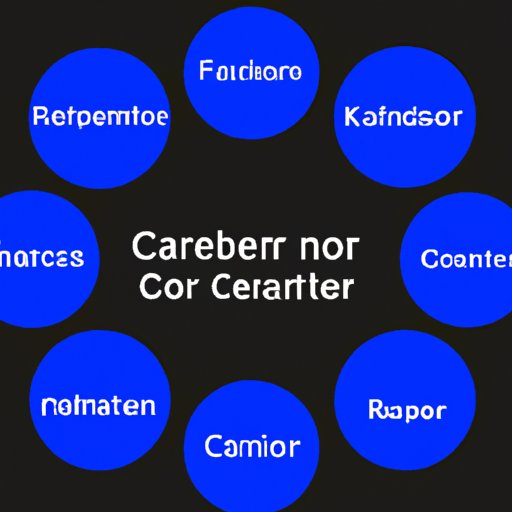
I. Introduction
Finding the right career can be a daunting task for many job seekers. It’s not always easy to know what you want to do with your life, but it’s an important question to answer. Choosing the right career can provide job satisfaction, financial security, and a sense of purpose. In this comprehensive guide, we’ll explore strategies to help you figure out what career you want.
II. Discovering Your Passions
One of the best ways to find a fulfilling career is to identify your passions. These are the activities that make you feel energized, happy, and engaged. Think about the things you enjoy doing in your free time, whether it’s painting, playing sports, cooking, or volunteering. This can give you clues about what you would enjoy doing as a career.
To further explore your passions, consider trying new activities in areas that interest you. Attend networking events or industry conferences to gain insights into different career paths. Research job descriptions for roles that align with what you’re passionate about. Learning more about potential careers will give you a better idea of what you want to pursue.
III. Understanding Your Personality
Personality plays an important role in job satisfaction. Understanding your personality traits and work preferences can help you identify careers that are a good fit. Tools such as quizzes and assessments can help you determine your personality type and work style.
There are various career paths that align with different personalities. For example, introverts may prefer jobs that involve solo work, while extroverts may thrive in collaborative environments. Research careers that match your personality type to determine if they align with your interests and skill set.
IV. Exploring Your Options
Once you’ve identified your passions and personality traits, the next step is to explore your career options. Researching potential careers is essential in narrowing down job choices. Begin by leveraging online resources such as job boards and career websites. LinkedIn can be a useful tool for networking and research.
Informational interviews with industry professionals can also provide valuable insights into potential career paths. Reach out to people in your desired field to learn more about their job, industry, and career progression. This can help you determine whether a career is a good fit.
V. Networking for Insights
Networking is a valuable tool for gaining insights into potential careers. Industry professionals can provide firsthand knowledge of what a career entails and what it takes to succeed in that field. To network effectively, reach out to people in your desired industry via LinkedIn, industry conferences, or personal connections.
When reaching out for networking opportunities, be clear about your intentions and what you hope to gain from the conversation. Ask open-ended questions to encourage dialogue and seek advice on how to pursue careers that align with your passions and personality traits. These insights can help you further identify suitable career options.
VI. Seeking Guidance
Career counselors and coaches can help you navigate the process of finding a career. A professional can help you identify your strengths, weaknesses, and career goals. They can also provide guidance on how to research careers, improve your resume, and prepare for interviews.
To find the right career counselor or coach, research professionals in your area and read reviews from other clients. Look for someone who specializes in your desired field and has a track record of success. When working with a counselor or coach, be open to their suggestions and be willing to put in the work to achieve your goals.
VII. Taking Action
Taking action is essential in finding your ideal career. Gaining practical experience can help confirm or rule out potential careers, as well as help you build skills and develop a professional network. Consider pursuing internships, volunteer work, or job shadowing to gain real-world experience in your desired field.
In taking action, remember to be patient and open-minded. Finding the right career can take time, but the effort will be worth it. Keep an open mind to different career paths and be willing to take risks in pursuit of your goals.
VIII. The Power of Trial and Error
Trial and error is a valuable learning tool in career exploration. Don’t be afraid to try out different jobs to gain insights into what you like and don’t like. Reflect on your experiences to determine what you learned and how you can apply those lessons to future career decisions.
When you experience setbacks or failures, view them as opportunities to learn and grow. Be willing to pivot and adjust the career search process based on experience. This flexibility will serve you well in the long run.
IX. Conclusion
Finding the right career can feel overwhelming, but it’s an important step in achieving job satisfaction and personal fulfillment. By understanding your passions, personality, and career options, networking with industry professionals, seeking guidance, taking action, and embracing trial and error, you can identify a career that aligns with your strengths and aspirations. Remember to be patient, flexible, and persistent in your pursuit of professional success.




